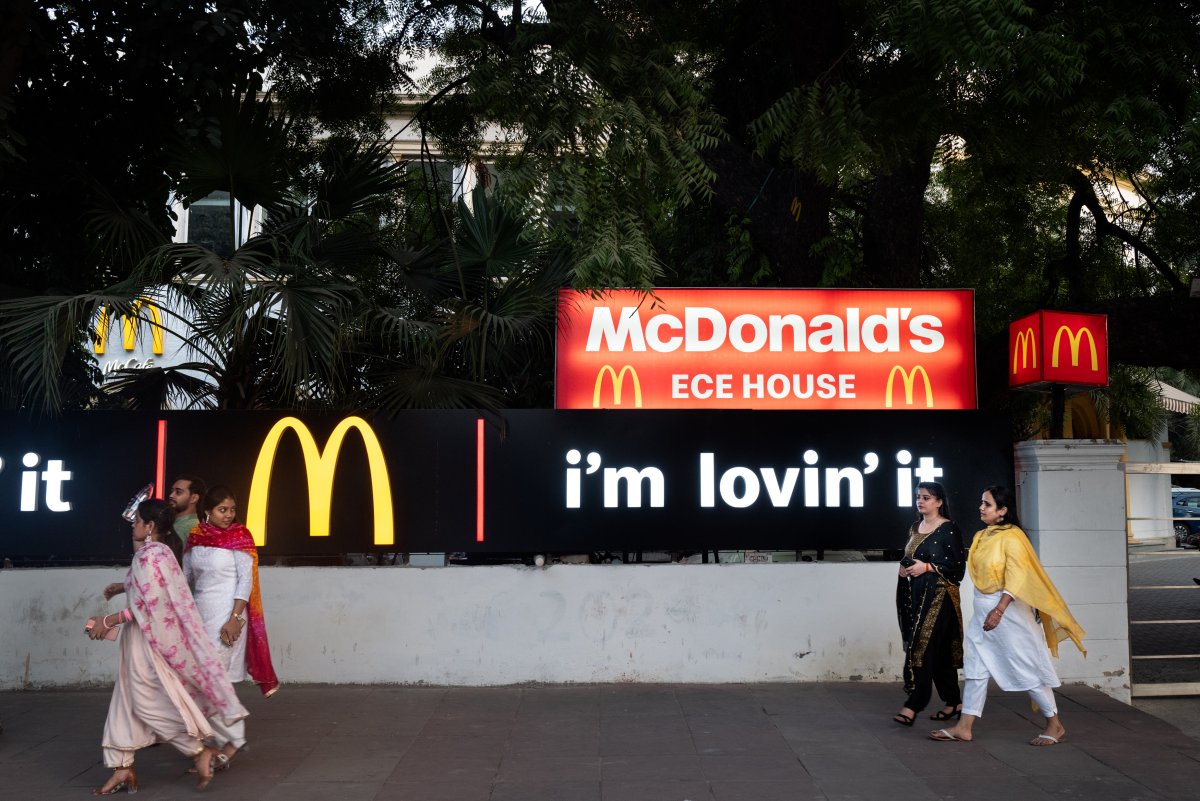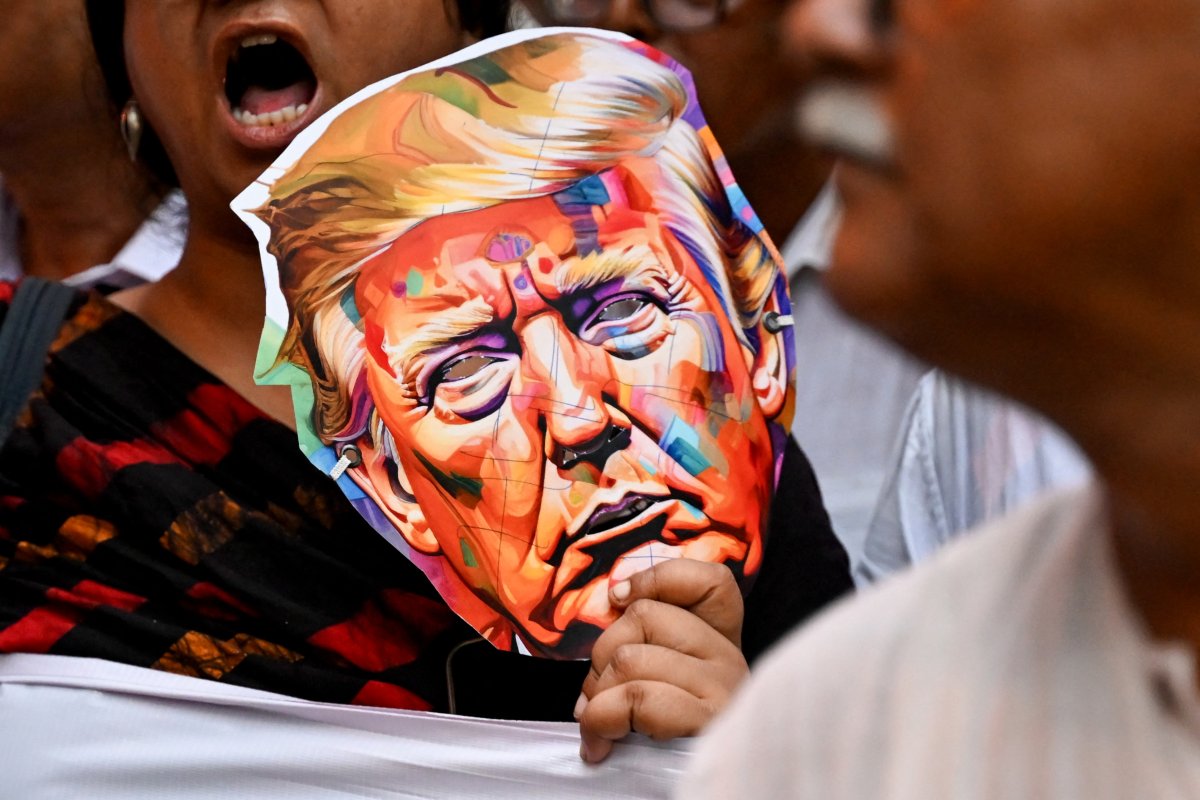A number of major American multinationals are facing calls for a boycott, again over anger at President Donald Trump‘s tariffs.
The latest calls come from Baba Ramdev, an Indian yoga guru and business owner with almost 3 million followers on Instagram. In remarks to Indian media outlets, Ramdev, a well-known public figure in the country, recently said American brands should be “completely boycotted” over Trump’s decision to impose a 50 percent duty on Indian goods.
“Not a single Indian should be seen at the counters of Pepsi, Coca-Cola, Subway, KFC, or McDonald’s. There should be such a massive boycott,” Ramdev continued, as quoted and translated by The Economic Times. He added, “If this happens, chaos will ensue in America.”
Ramdev’s call reflects a groundswell of anti-U.S. sentiment that has swept India in recent weeks, with grassroots campaigners and lawmakers expressing outrage at the recent tariff hike, and the country’s leaders advocating economic self-reliance in response.
Newsweek has contacted Ramdev via email and social media for comment and has reached out to the U.S. companies mentioned for a response.
Why It Matters
Trump’s tariffs have already triggered anti-American boycotts across affected countries, including France, the United Kingdom and, notably, Canada. The latter campaign—which has adopted the hockey-inspired mantra of “elbows up” and encourages citizens to “buy Canadian”—has already affected the bottom lines of U.S. companies across several sectors.
With a population of almost 1.5 billion, the latest boycott calls could cause significant challenges for U.S. companies operating in India, especially in light of Prime Minister Narendra Modi recently urging Indians to abstain from foreign-sourced products and exclusively purchase those “made in India.”
What To Know
Trump had originally planned to place a 25 percent tariff on Indian imports, down from the 26 percent “reciprocal” rate announced in early April.
On August 6, however, Trump signed an executive order doubling the tariff over India’s continued purchases of Russian Federation oil.

Elke Scholiers/Getty Images
“India is not only buying massive amounts of Russian Oil, they are then, for much of the Oil purchased, selling it on the Open Market for big profits,” Trump posted on Truth Social days before the order. “They don’t care how many people in Ukraine are being killed by the Russian War Machine. Because of this, I will be substantially raising the Tariff paid by India to the USA.”
This tariff hike, which came into effect on Wednesday, was immediately met with backlash. The Indian Ministry of External Affairs called it “unfair, unjustified and unreasonable.” Experts who spoke with Newsweek warned that the rift now developing between the two typically friendly nations could be exploited by China politically and economically.

Dibyangshu Sarkar/AFP via Getty Images
In recent weeks, Indian lawmakers have joined the grassroots calls for a boycott of U.S. goods over the tariffs. Ashok Mittal, a member of Parliament in India’s upper house, Rajya Sabha, sent an open letter to Trump in early August highlighting the contributions made by India to the U.S. economy, warning that a “strategic restriction” on American purchases “would be far more severe for the United States than for India.”
This forms part of a broader call for “Swadeshi,” or economic self-reliance, in India in response to the tariffs, with Indian CEOs taking to social media to advocate for greater prioritization of domestic industries.
Earlier this month, Reuters reported that Swadeshi Jagran Manch, a political movement with ties to Modi’s Bharatiya Janata Party, had organized protests across India calling for a boycott of all U.S. goods.
Should a sizable share of the population heed these calls, this could create significant difficulty for the U.S. companies that operate in India.
In its most recent fiscal year, Westlife Foodworld, the master franchisee for McDonald’s in western and southern India, reported 23.9 billion rupees in revenue (about $271 million). Meanwhile, Indian media outlets reported earlier this year that PepsiCo India’s revenue had reached the equivalent of about $1 billion.
What People Are Saying
Baba Ramdev said in a recent interview: “Just like we asked the British to quit India, similarly we will have to boycott American companies. When such a boycott starts, there will be so much pressure on Trump in America itself. Even now, the majority of people there, probably more than 50 percent, have come out in opposition to him. So he will not have the courage. He will have to take back his steps. Just like he had to take back his steps against China.”
Indian Prime Minister Narendra Modi said in a speech this week: “My government will never allow any harm to come to small entrepreneurs, farmers and animal keepers. No matter how much pressure we face, we will continue to strengthen our ability to withstand it.”
What Happens Next
The latest tariff hike took effect on Wednesday. It remains to be seen what effect the growing calls for a U.S. boycott will have on American businesses in India.